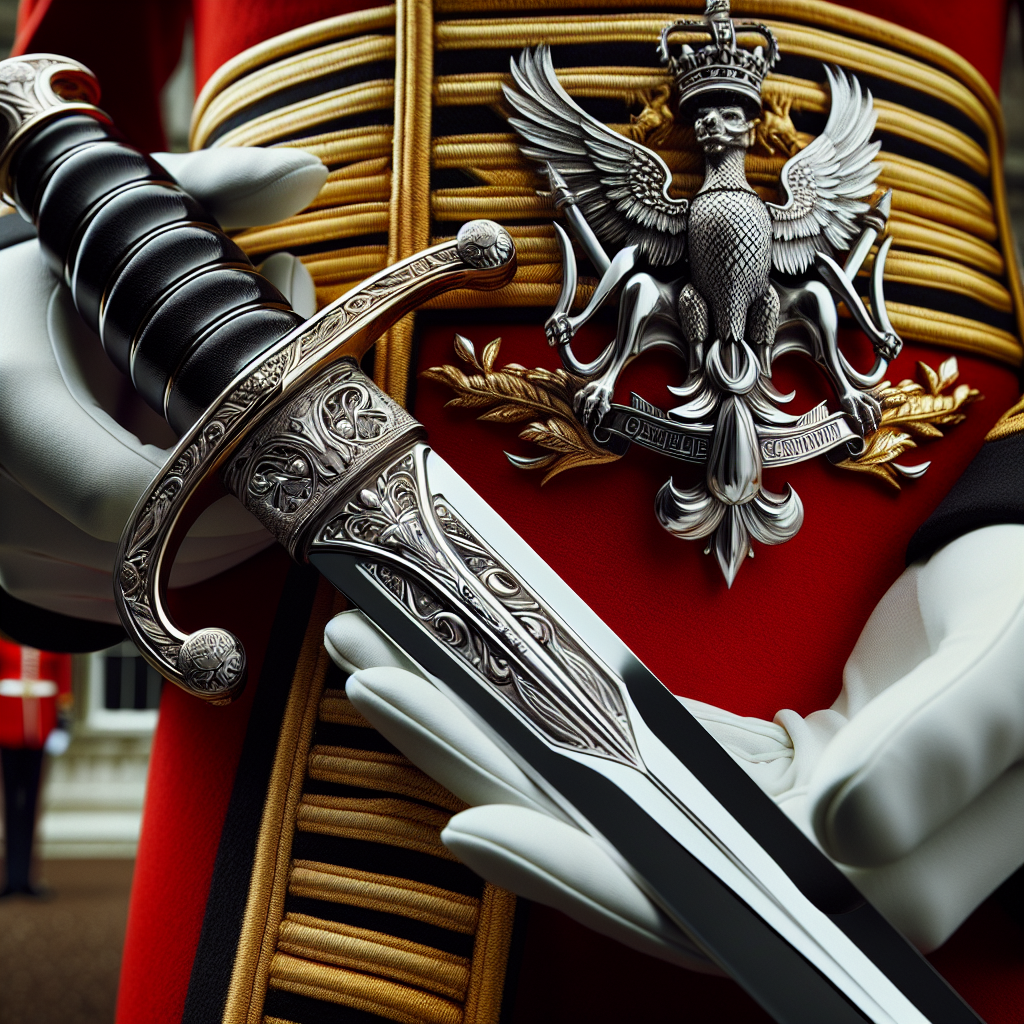“The Consequences of Messing with a Royal Guard” is an informative article that sheds light on the highly disciplined and elite group of soldiers known as the Queen’s Guard in London. The article highlights their history, their rigorous qualifications, and the serious consequences that can occur if anyone tries to interfere with their duty. It emphasizes the fact that they are trained soldiers and will use force if necessary. Furthermore, the article discusses the unique challenges they face, such as wearing heavy uniforms, including bearskin hats, and their tendency to faint due to heat stroke.
Visitors to London might be fascinated by the iconic Queen’s Guard standing stoically in front of Buckingham Palace, but this article reveals the true nature and importance of these soldiers. It provides insights into their role as protectors of the British Monarch, their historical significance in England’s military victories, and the strict discipline they adhere to. The article serves as a cautionary reminder to never underestimate the seriousness of messing with a Royal Guard, as their consequences can be severe.
The Consequences of Messing with a Royal Guard
Introduction
Visitors to London are often intrigued by the iconic Queen’s Guard standing stoically in their red coats in front of Buckingham Palace. These guards may appear motionless, but they are far from lazy or slow. In fact, they are part of an elite, highly trained, and secretive group of soldiers. Messing with a Royal Guard can have serious consequences, as they are committed to protecting the British Monarch at all costs. In this article, we will explore the history of the Queen’s Guard, the qualifications to become one, their duties and disciplinary rules, the consequences of interfering with a guard, the physical and psychological consequences of such actions, the guards’ unwavering commitment to duty, and the challenges they face.
History of the Queen’s Guard
The Queen’s Guard has a rich and storied history that dates back to at least 1660. During times of war and revolt, the Royal Guard was seen as a formidable force, deterring attacks on the king or queen. They have even played crucial roles in England’s military victories. Today, the Queen’s Guard continues to serve as an ancient order of England’s most trustworthy, dedicated, and highly trained soldiers, sworn to protect the British Monarch.
Qualifications to Become a Queen’s Guard
Becoming a Queen’s Guard is no easy feat. Candidates must meet a range of physical and mental requirements. One such requirement is a height of no shorter than 5 foot 10, ensuring that guards have a commanding presence. Additionally, guardsmen must be members of one of the seven most exclusive regiments of the British army. These regiments are invitation-only, which means candidates must be selected rather than volunteering for the position.
Duties and Disciplinary Rules
The primary duty of a Queen’s Guard is to protect the British Monarch. They are expected to remain stoic and motionless, regardless of what is happening around them. The guards are forbidden from reacting or responding to anything unless physically touched or violently threatened. Laughing or interfering with their duty can result in imprisonment. The guards adhere to strict discipline and have a strict code of conduct. They are never allowed to abandon their posts, even for necessary breaks, such as using the restroom.
The Consequences of Interfering with a Guard
Interfering with a Royal Guard can have severe consequences. These guards undergo rigorous training and are highly skilled in hand-to-hand combat. If necessary, they are authorized to use physical force. The legal implications for those who interfere with a guard can result in fines or even imprisonment.
Physical Consequences of Messing with a Guard
Attempting to touch or assault a Royal Guard can lead to physical altercations. The guards are trained to protect themselves and the British Monarch by employing force when necessary. However, both parties involved risk potential injuries, and legal action may be taken against the assailant.
Psychological Consequences of Messing with a Guard
Messing with a Royal Guard can have long-lasting psychological effects on both the guards and the individuals who interfere with them. Guards may experience immense stress and pressure, which can impact their mental well-being. They are also at risk of developing post-traumatic stress disorder (PTSD) due to the nature of their duty and the potential for confrontations. On the other hand, individuals who interfere with a guard may face the psychological consequences of their actions, such as guilt or remorse.
The Guards’ Commitment to Duty
The Queen’s Guard exemplifies unwavering dedication to their duty. They have a profound sense of responsibility towards the British Monarch, and their commitment to protection goes beyond their personal safety. The guards’ role is steeped in symbolism and tradition, and they understand the significance of their position in upholding the honor and integrity of the British monarchy.
Challenges Faced by the Guards
The Queen’s Guard faces numerous challenges in carrying out their duties. One of the major challenges is standing for extended periods while wearing heavy uniforms, including bearskin hats. The guards must endure various weather conditions, including hot summers and cold winters, without being able to adjust their attire. These conditions often lead to guards fainting from heat stroke, but they are expected to regain consciousness and remain dedicated to their posts.
Conclusion
Messing with a Royal Guard has serious consequences, both physically and psychologically. The Queen’s Guard in London consists of highly trained and elite soldiers who are committed to protecting the British Monarch. They have a rich history and qualifications that make them among the best soldiers in the world. Interfering with a guard can lead to physical altercations, legal implications, and potential psychological distress. It is crucial to respect the role and duties of the Queen’s Guard and understand the immense commitment they have to their duty and the British Monarchy.
